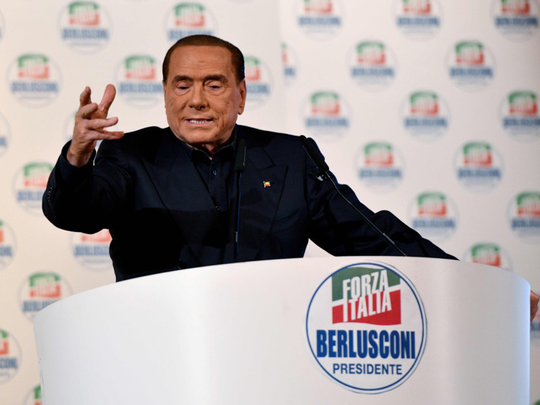
Italy is preparing for landmark national elections on March 4 which threatens potential political and economic paralysis. With such a deadlock on the horizon in a nation where there have been more than 60 national governments in the post-war era, concerns are growing across the continent about the ballot outcome in the Eurozone’s third largest economy.
The last crop of pre-election polls released on February 16, before the current two week blackout period began, point to the prospect of no one party or bloc having a working majority in parliament. Should this happen, President Sergio Mattarella may seek to put in place a technocrat or coalition government, or potentially call a new election which would see centre-left Democratic Party (PD) Prime Minister Paolo Gentiloni — who is currently the nation’s single most popular politician by some margin — stay on in a caretaker role until then.
The February 16 polls indicate that the bloc most likely to emerge in the strongest position, according to the election surveys, is the conservative one led by controversial former prime minister Silvio Berlusconi. The latter, now at the ripe age of 81, may be on the verge of an extraordinary return to the political limelight given his 2013 tax fraud conviction which means that he cannot personally run for office (Berlusconi has yet to name his preferred candidate for the prime minister role should his alliance emerges victorious).
His Forza Italy! (Go Italy!) party is running with two far-right allies, The League and Brothers of Italy, which has collectively averaged just over 35 per cent in recent polls. This is despite the inherent disputes within this group with The League’s Matteo Salvini asserting that he wishes to leave the EU and Eurozone, while Berlusconi is significantly more pro-European.
While this alliance therefore appears in the strongest electoral position for March 4, the most popular —single — party is actually the populist 5-Star Movement which scores just below 30 per cent in recent polls, but it has ruled out forming any alliances which probably means it will not win power this time around.
Polls since December has shown no major shift in voting intentions, but the election outcome nonetheless remains in the balance. The two big reasons for this unpredictability are that more than a third of Italy’s 50 million voters remain undecided, and secondly the introduction of a new, untested voting system that is two thirds proportional representation, and one third first-past-the-post, to make it harder for any one single party to win power.
Under the latter, the next Italian government will need to have secured around 40 per cent of the vote to win a working majority. This is a tall order given the significant fragmentation of the country’s political landscape: hence why a German-style grand coalition cannot be ruled out after the election between one or more right-of-centre party and the centre-left PD (currently polling at less than 25 per cent ) which is being led again by previous prime minister Matteo Renzi who resigned in December 2016 after losing a constitutional referendum.
The potential post-election political paralysis is causing growing concern across other European capitals because Italy has been seen as the biggest threat to the Eurozone’s future. It has the second biggest debt load in the single currency area at over 130 per cent of GDP, and its banking sector is under significant stress with massive under-performing loans representing an estimated 135 per cent of GDP (more than 20 per cent of the Eurozone’s total).
There remains significant public angst over corruption, the nation’s migration crisis, and continuing fragility of the economy with double-digit unemployment and low growth. Indeed, GDP per head is now less than in 1997 at constant prices: only Greece has fared worse in the Eurozone during this period which has fuelled the success of anti-establishment parties like 5-Star.
The latter, which was founded around a decade ago by former comic Beppe Grillo, is now led by 31-year- old Luigi Di Maio. Five Star and has already won mayoral elections in key cities like Rome and Turin. In the past, it has asserted the country should reconsider its role in the EU, and called for a referendum on whether it should keep the Euro single currency.
In this troubled political context, even a grand coalition could be weak, unstable and incapable of securing the structural reforms that the country badly needs. If this happens, many voters may rue the decision to vote down Renzi’s constitutional plans from 2016 that he hoped would usher in greater political stability to the nation.
His argument then was that more stable majorities in the legislature, and the stronger government this would have facilitated, would enable reforms needed to enhance economic growth and reduce the public debt. However, opponents of the reforms, including ex-technocrat prime minister Mario Monti, asserted they would have given the executive excessive power, and made government less accountable.
Taken overall, the Italian vote will see no single party have a working majority, but polls indicate Berlusconi’s bloc could collectively win more than the 40 per cent required. Even if that proves the case, or a broader grand coalition is forged, the second half of 2018 could bring renewed political and economic uncertainty in Italy given that any new administration may be weak, unstable and incapable of securing the structural reforms that the country badly needs.
Andrew Hammond is an Associate at LSE IDEAS at the London School of Economics.








